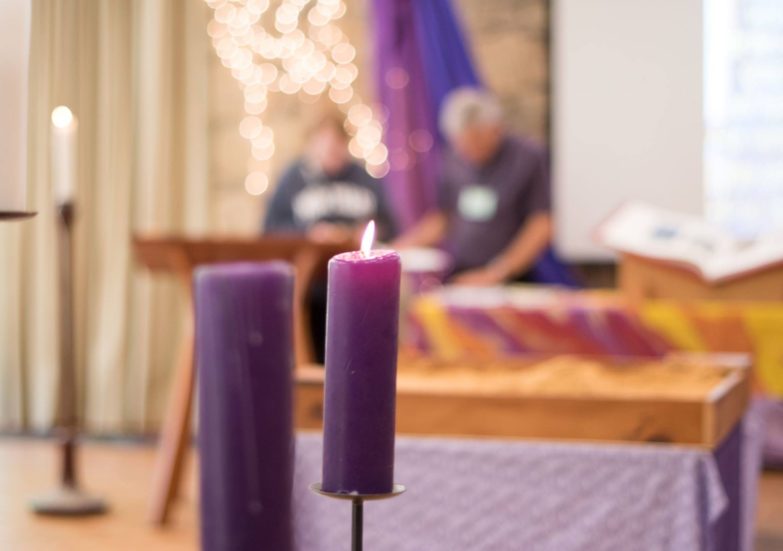A devotional from staff member Martha Sloan
Written from a study her church has been reading, “Lent in Plain Sight” by Jill Duffield. In the book, Duffield takes common objects like coins, sandals, oil, etc. and uses them as the basis for her Lenten meditations. In Martha’s devotional, the object is “coats.”
“These are the vestments that they shall make: a breastpiece, an ephod, a robe, a checkered tunic, a turban, and a sash. When they make these sacred vestments for your brother Aaron and his sons to serve me as priests, 5 they shall use gold, blue, purple, and crimson yarns, and fine linen.”
I often think of coats in a sort of excited way, an indication that you’re embarking on something; “Grab your coat; let’s go!”
Today’s reading from Exodus is one of many that describe how the Israelites are to live in their new home, the Promised Land. After 40 years of wandering in the wilderness, they now have the homeland they longed for, complete with much detail from God to guide their living in their new land in a way that grounds them in who they are and whose they are. They are God’s chosen; a people set apart. In a New Testament reflection of this, Christ spends 40 days in the wilderness. Like the children of Israel, he is chosen; set apart, “This is my Son, my Chosen One.” (2 Peter 1:17)
As a solemn, ritual reminder of these echoing events many of us adopt the Lenten practice of giving something up; a self-imposed wilderness. But this year, that wilderness has taken on a deeper meaning. It is oddly fitting that we have been sent into this wilderness at just this time in our liturgical year.
The earlier chapters of Exodus provide evidence that God did not abandon his children in the desert. He provided manna from heaven and water from a rock; He spoke regularly with Moses, providing him with the wisdom he needed to lead. It is comforting to know that in all that time, God was present.
To be sure, our wilderness is very different from the Israelites. They wanted to get home; many of us would like to leave home. They had some idea where they would be at the end of their journey; we don’t know where we will be when our wandering ceases. I don’t know if the Israelites knew how long they would be in the wilderness, and no one can know just how much time we will spend here, but probably a pretty good deal of it. Somewhere between 40 days and 40 years is my guess.This is, for me, another strange irony of our imposed wilderness. We often bemoan never having enough time and now that we’ve got lots of it, we’re not sure we want it, or what to do with it. Given the weight of these days, I offer that it is a gift to have time; time to process and assimilate what this all means. Time to be silent. Time to discern. Time to be creative. Time to let go. Time to ask. Time to listen. Time to have fun. Time to rest. I am confident that no matter how much time we have, God will be with us; “For I know the plans I have for you…plans to prosper you and not to harm you; plans to give you hope and a future.” – Jeremiah 29:11
Life will be different after we leave this wilderness behind. Already, some of our patterns of living have changed; we work differently; we volunteer and interact with our communities differently; we congregate, as a church scattered. I can’t be sure of all the ways life will be changed moving forward, but I’m confident there will be new work to be done. Like the guidance He gave to the children of Israel, God will guide our living in our new land. After all, as followers of Christ we too are His chosen. So embrace this time to imagine, to envision, to prepare. And grab your coat.
Sustaining God,During these days of quarantine and physical distancing, help us draw ever closer to you. May we use this “holy disruption”* to prepare for the days to come when we will be called out into your world again. Amen. *from the hymn “Wilderness Gifts Us A Holy Disruption”; Stephen M. Fearing
Martha Sloan

